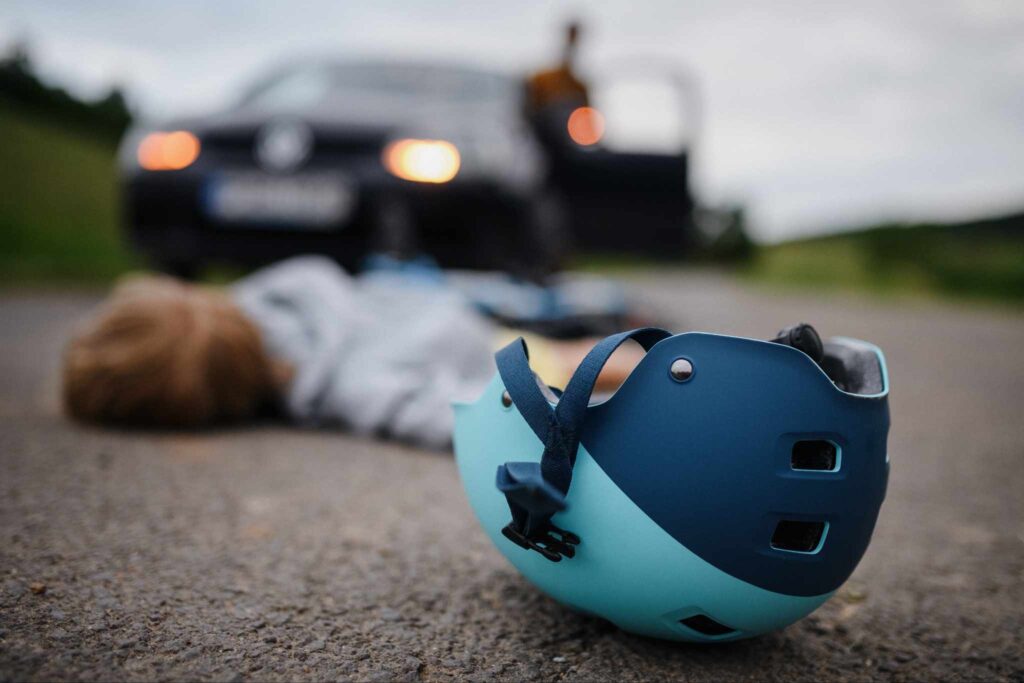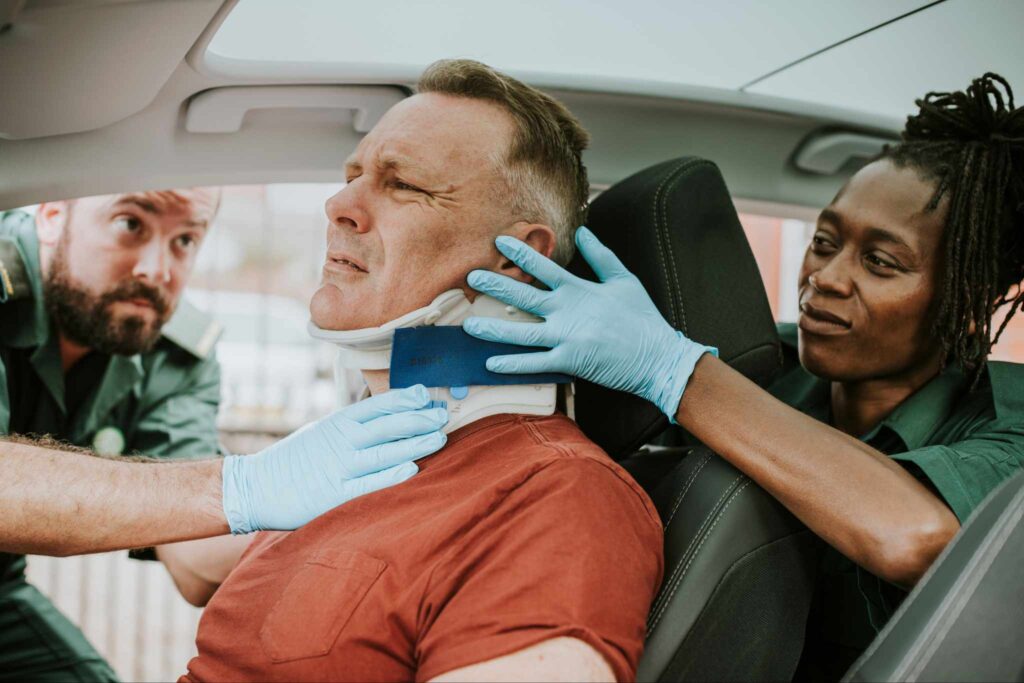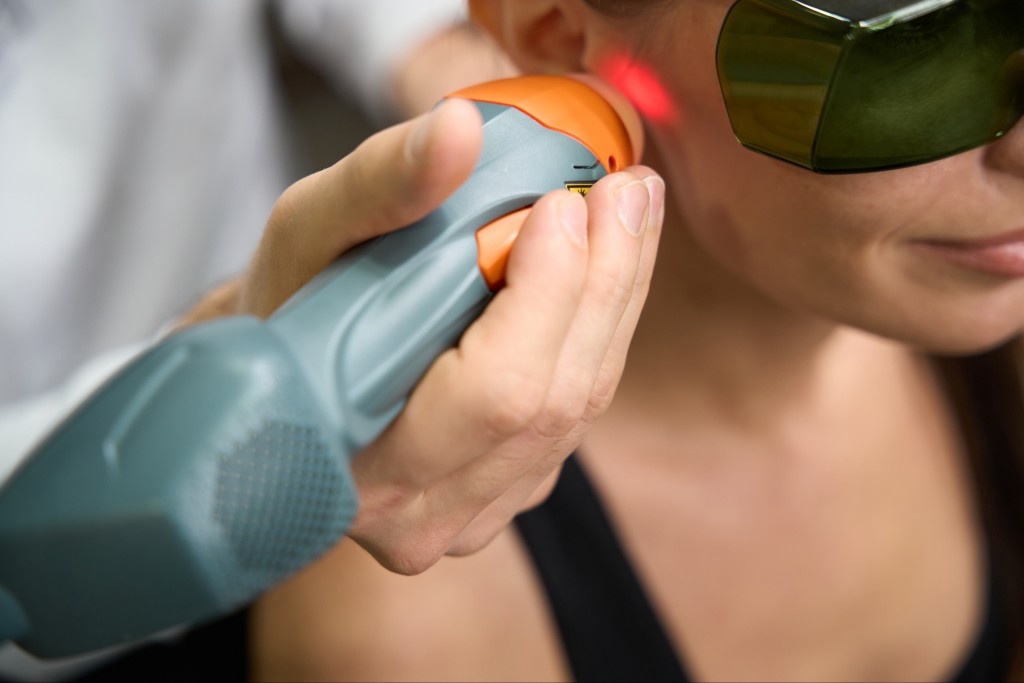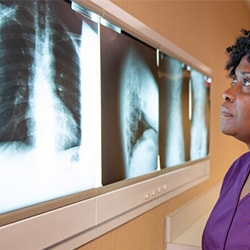 Motorcycle accidents are a significant concern for riders and their families due to the high risk of severe injuries. Unlike car accidents, where the vehicle provides some protection, motorcyclists are more exposed, making them more vulnerable to injuries. Let’s explore the top five motorcycle accident injuries and their treatment options, ranging from noninvasive methods like chiropractic care and physical therapy to more intensive treatments involving orthopedic doctors and surgery.
Motorcycle accidents are a significant concern for riders and their families due to the high risk of severe injuries. Unlike car accidents, where the vehicle provides some protection, motorcyclists are more exposed, making them more vulnerable to injuries. Let’s explore the top five motorcycle accident injuries and their treatment options, ranging from noninvasive methods like chiropractic care and physical therapy to more intensive treatments involving orthopedic doctors and surgery.
Top 5 Motorcycle Accident Injuries
1. Road Rash
Road rash occurs when a motorcyclist slides across the pavement during an accident, causing abrasions to the skin. This type of injury can range from mild to severe, with deeper wounds requiring more intensive care. In severe cases, road rash can penetrate multiple layers of skin, potentially exposing underlying muscles and nerves, all of which can increase the risk of infection and complications. Immediate and thorough medical attention is crucial to clean and dress the wounds properly, minimize scarring, and promote healing.
Treatment Options for Road Rash
- Cleaning and Dressing: Initial treatment involves thoroughly cleaning the wound to remove debris and prevent infection. Applying antiseptic and dressing the wound is crucial.
- Chiropractic Care: While chiropractors primarily deal with musculoskeletal issues, they can also provide advice on proper wound care and pain management techniques through recovery.
- Physical Therapy: For severe cases, physical therapy can help restore mobility and strength to affected areas, particularly if the injury involves muscle or joint damage.
- Topical Antibiotics: Application of antibiotic creams or ointments to prevent infection and promote healing.
- Orthopedic Consultation: If road rash leads to severe soft tissue damage or infection, consultation with a motorcycle accident doctor may be necessary for further treatment, which could possibly involve surgical intervention.
2. Fractures
Fractures are common in motorcycle accidents due to the high-impact forces involved. The most frequently fractured bones include the arms, legs, ribs, and collarbones. These injuries can result in significant pain, loss of function, and extended recovery times. Prompt and appropriate treatment is essential to ensure a broken bone heals properly, prevent complications, and restore strength and mobility in the affected areas.
Treatment Options for Fractures
- Immobilization: Splinting or casting the broken bone to prevent movement and allow proper healing.
- Pain Management: Over-the-counter pain relievers and anti-inflammatory medications.
- Chiropractic Care: Chiropractors can aid in managing pain and improving mobility during the recovery process, focusing on ensuring proper alignment and promoting healing.
- Physical Therapy: Essential for regaining strength, flexibility, and function after the initial immobilization period. Tailored exercises and therapies can speed up recovery and prevent complications.
- Orthopedic Surgery: Severe fractures may require surgical intervention to realign and stabilize the bones using plates, screws, or rods. Post-surgery, physical therapy is crucial for full recovery.
3. Head Injuries
Head injuries, including concussions and traumatic brain injuries (TBIs), are among the most serious motorcycle injuries. Even with helmets, riders can suffer significant head trauma during a crash. Head injuries can lead to long-term cognitive, physical, and emotional impairments, affecting the victim’s quality of life and ability to perform daily activities. Immediate medical evaluation and ongoing monitoring are essential to assess the severity of the injury, manage symptoms, and begin a tailored treatment plan to aid recovery and minimize potential long-term effects.
Treatment Options for Head Injuries
- Rest and Observation: Mild concussions often require rest and monitoring for any worsening symptoms.
- Chiropractic Care: Some chiropractors specialize in treating head injuries by addressing neck and spine issues that may be contributing to headaches or dizziness.
- Physical Therapy: Focused on balance, coordination, and addressing any musculoskeletal issues resulting from the accident.
- Neurological Consultation: Severe head injuries require evaluation and treatment by a neurologist. This might include diagnostic imaging, medication management, and potentially surgery.
- Surgery: In cases of brain swelling or bleeding, surgical intervention is critical to alleviate pressure and prevent further damage.
4. Spinal Cord Injuries
 Spinal cord injuries can result in partial or complete paralysis, making them among the most devastating outcomes of motorcycle accidents. These injuries can lead to a permanent loss of motor function and sensation below the site of the injury, significantly impacting the victim’s independence and quality of life. Early intervention and specialized medical care are crucial to stabilize the spine, reduce swelling, and prevent further damage.
Spinal cord injuries can result in partial or complete paralysis, making them among the most devastating outcomes of motorcycle accidents. These injuries can lead to a permanent loss of motor function and sensation below the site of the injury, significantly impacting the victim’s independence and quality of life. Early intervention and specialized medical care are crucial to stabilize the spine, reduce swelling, and prevent further damage.
Treatment Options for Spinal Cord Injuries:
- Immediate Immobilization: To prevent further damage, immobilizing the spine immediately after the injury is critical.
- Chiropractic Care: Chiropractors can provide noninvasive pain relief and help manage symptoms in conjunction with medical doctors to ensure safe healing.
- Physical Therapy: Essential for maintaining muscle function, improving mobility, and preventing complications. Specialized exercises can help maximize the remaining function.
- Occupational Therapy: Helps individuals regain independence by teaching them how to perform daily activities with their limitations.
- Orthopedic and Neurosurgical Interventions: Surgical procedures may be necessary to stabilize the spine, relieve pressure, and repair any damaged structures.
- Rehabilitation Programs: Comprehensive rehab programs are crucial for spinal cord injury patients to improve their quality of life and adapt to their new circumstances.
5. Internal Injuries
Internal injuries, including damage to organs, internal bleeding, and punctured lungs, are often life-threatening and require immediate medical attention. These injuries can be particularly dangerous because they may not be immediately obvious. Timely medical attention is essential to control bleeding, repair damaged tissues, and stabilize the patient’s condition, followed by careful monitoring through recovery.
Treatment Options for Internal Injuries:
- Observation and Monitoring: Minor internal injuries may be managed with careful monitoring in a hospital setting.
- Pain Management: Appropriate pain relief to manage discomfort without masking symptoms of potential complications.
- Chiropractic Care: Once stabilized, chiropractors can help manage pain and improve overall well-being, focusing on the musculoskeletal aspects impacted by the injury.
- Physical Therapy: Rehabilitation to restore strength and function after initial recovery, tailored to the specific organs or systems affected.
- Surgical Intervention: Emergency surgery is often required to address internal bleeding, repair organ damage, and prevent further complications.
Comprehensive Treatment Approach to Motorcycle Accident Injuries
Injuries from motorcycle accidents can be severe and life-altering, but with proper treatment, recovery is possible. From noninvasive approaches like chiropractic care and physical therapy to more intensive treatments involving orthopedic doctors and surgery, a comprehensive and multidisciplinary approach is essential for effective recovery. Understanding the types of injuries and available treatments with AICA Orthopedics in Atlanta can help those injured in a motorcycle accident navigate their path to recovery more effectively.








